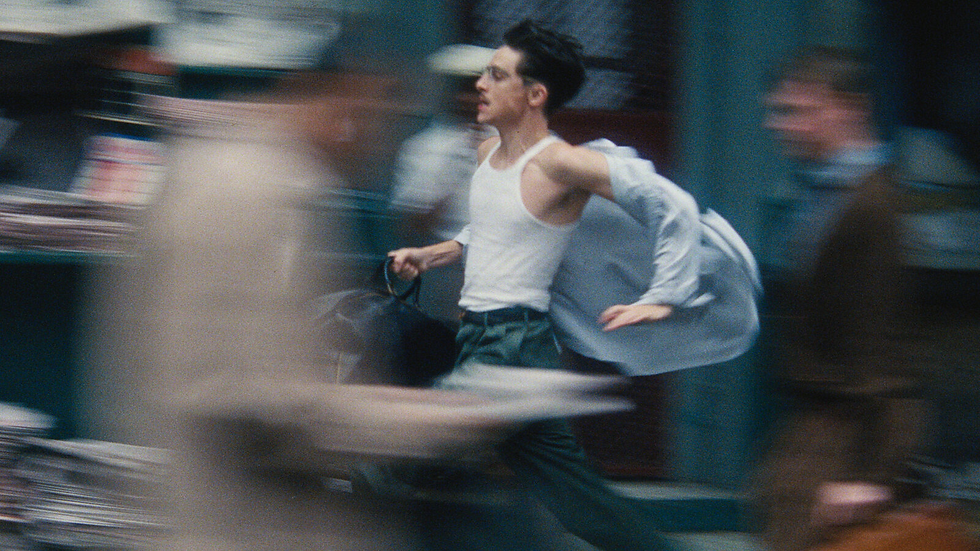"Sorry, Baby" - A Staggering Film of Unique Understanding
- Eric Hardman

- Aug 6, 2025
- 3 min read
As is every year, this year’s Sundance Film Festival welcomed the arrival of plenty of new, and exciting voices to the cinematic landscape. One of this year’s most talked about films out of the festival was Sorry, Baby written, directed, and lead on screen by relative newcomer, Eva Victor. A24 distributed the film, and this past weekend it expanded into a limited-wide release. If the film is playing anywhere near you, I would highly recommend a viewing; if for no other reason than to allow the shockingly unorthodox structure to sweep you off your feet.

The film examines the life of a college professor (Victor), in non-linear stages of her life, held together by a sexual assault she experienced while attending university. Her best friend, Lydie (Naomi Ackie), is alongside her every step of the way as they both learn, and remind us as viewers that the grieving process is about as linear as the structure of the film itself. What is most abundantly clear about the film almost immediately, is how perfectly interwoven comedy is into even the film’s most tragic moments. Immediately following the assault in question, Agnes and Lydie check in to the hospital for an examination…and this scene is somehow possibly the funniest in the film. There is a thoroughly dry eccentricity embedded into nearly every line of Eva Victor’s performance that creates an atmosphere unlike any that I’ve seen in a long time. Juxtaposing this with Ackie’s extroverted, bubbly demeanor, creates a dynamic that is utterly irresistible in moments that you’re thankful are making you laugh, instead of sobbing uncontrollably.
Admittedly, if you’re someone like me who likes to go into films as blind as possible without viewing, or reading much of any promotional material, the elements I just mentioned may initially blindside you, and take you a moment to settle in to. I feel more inclined than normal to give this disclaimer since I’ve only seen the film once, and while I loved everything about it, it took me a minute to fully settle into before I could start appreciating it all.
The most common gripe that I have with films of this nature, is that often in more emotional sequences, it feels as if shot lengths were over-planned, which can sever the amount of time an actor feels that they have to experiment with their performances. Here, nothing could be further from observed. The film consistently utilizes long, static, medium close-up angles of the performers to allow ample time to soak in all of the emotions these characters are feeling. Even when the film does choose to cut to a new angle, it feels entirely purposeful, and never feels as though it’s to compensate for any choice, or lack thereof that an actor may be making.

Naomi Ackie has been a quiet favorite of mine in recent years, and in this film she completely outdoes herself. There is such a soft and intimate yet strong trust between her and Eva Victor that is undeniable on screen. Through playing Lydie, she cements herself as being one of the most underrated performers of her generation. Lucas Hedges, Louis Cancelmi, Kelly McCormack, and John Carroll Lynch also prove to be strong, albeit minimal supporting characters in Agnes’ world. However insignificant each conversation might feel while it’s happening, each one brings Agnes one step closer to understanding herself, and live with what has happened to her.
When feeling such an intense, unexplainable grief as the one Agnes suffers from, it can be easy to assign meaning to every minute detail of your life as a way of finding meaning in what happened to you. What often comes with that is initially shame at not being able to come to a conclusion. But later, oftentimes years later, comes an understanding that there is peace in never understanding, but still being able to search for evolution and nonlinear healing in every aspect of your life.
This world is a tricky one to circumnavigate, especially when we’re forced to realize that it will never stop spinning when our’s is shattered. But thankfully, as Sorry, Baby reminds us, there is far more ability in the visually ordinary to make us feel all of the extraordinary.



